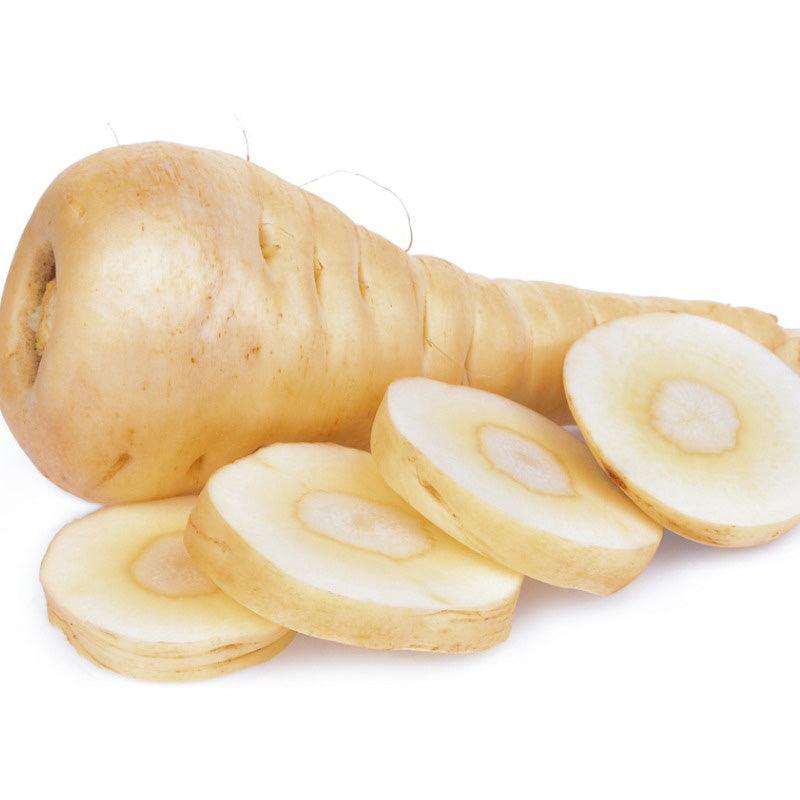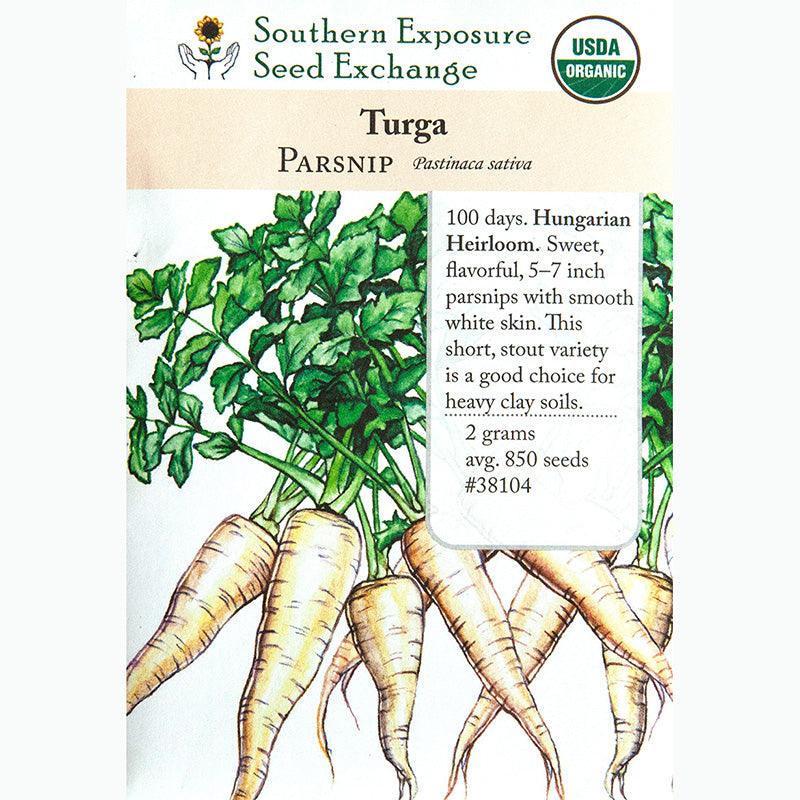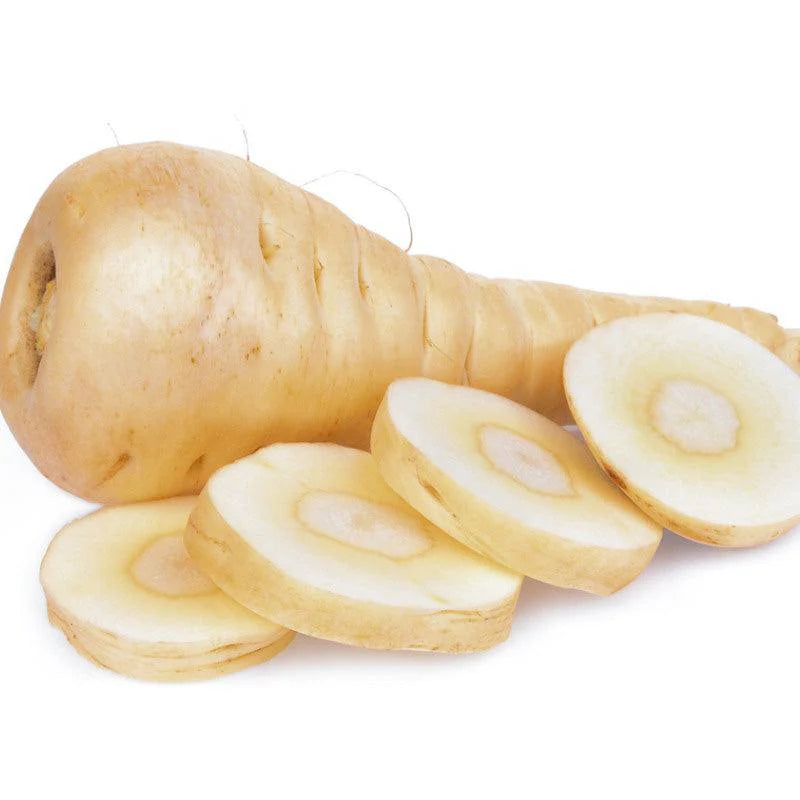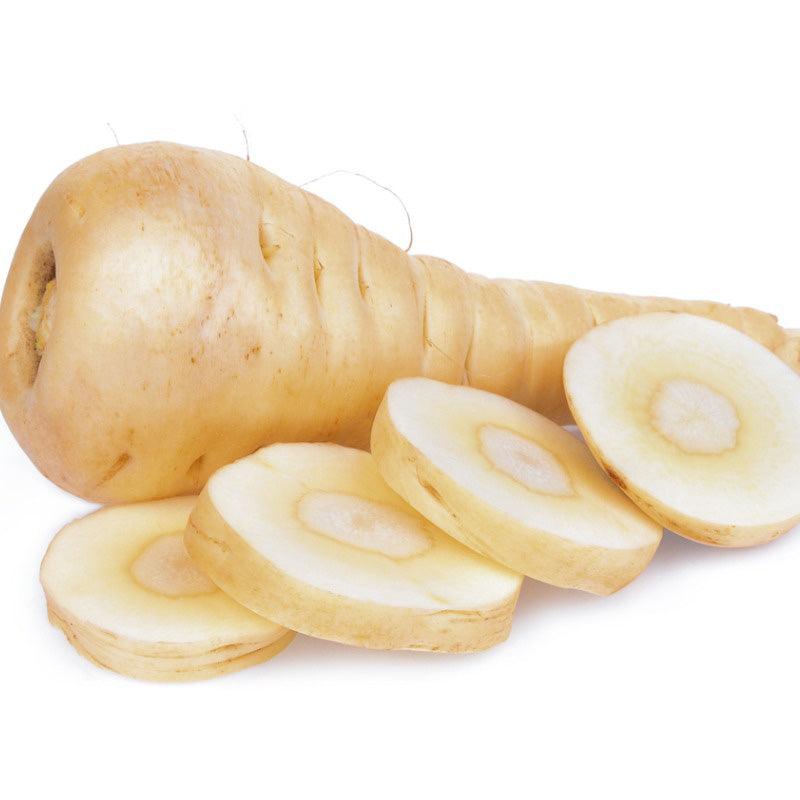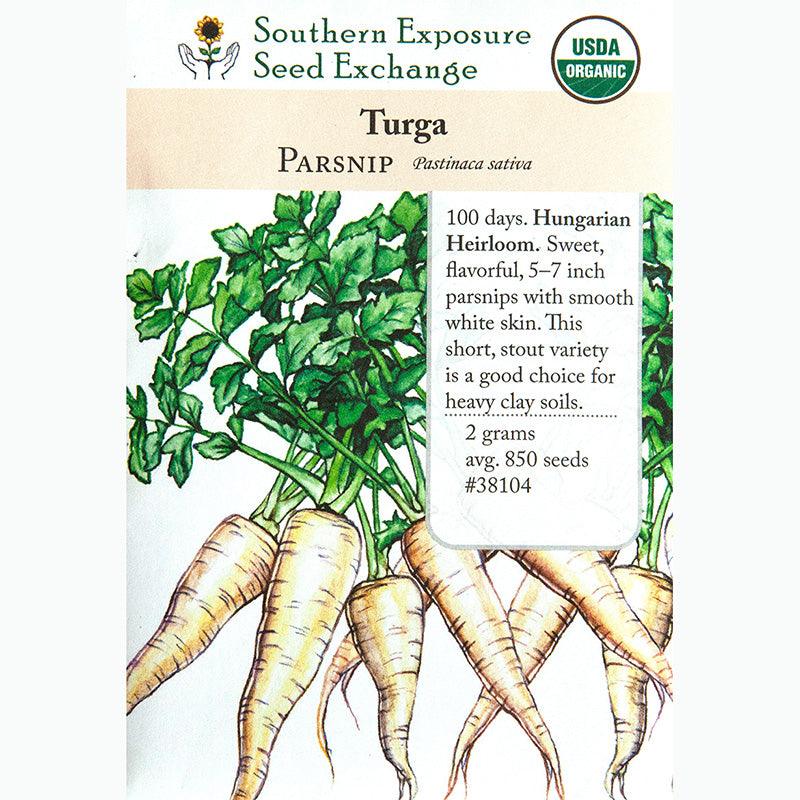Item Number: SNV2019
Turga Parsnip Seeds (Organic)
Creamy Flavorful Roots
The Turga Parsnip, also known as Pastinaca sativa 'Turga,' is a cultivar originating from Europe, renowned for its sweet, nutty flavor and adaptability to various growing conditions.
The Turga Parsnip plant itself displays a biennial nature, forming a rosette of deeply lobed leaves and a taproot that's the prized edible part. Its roots grow long and tapered, often reaching impressive sizes with a creamy-white, tender interior.
Turga Parsnips offer a unique taste profile, featuring a sweet, nutty flavor with hints of earthiness. These qualities make them a favored choice for roasting, mashing, or adding depth to soups and stews.
When planting from seed, Turga Parsnips thrive in well-drained, fertile soil with adequate moisture. Sow seeds directly into the ground in early spring or late summer, ensuring a depth of about half an inch to an inch. Consistent watering and adequate spacing between seeds promote healthy root development.
These parsnips prefer full sun but can tolerate partial shade, especially in warmer climates. Regular weeding and mulching help maintain moisture and suppress weed growth, aiding in the plant's overall health and root development.
Turga Parsnips typically take around 110-130 days to reach maturity, but they can be harvested earlier for smaller roots or left in the ground longer for larger, sweeter roots. Their adaptability and flavorful roots make Turga Parsnips a favored choice among gardeners seeking a versatile and delicious addition to their harvest.




Check Your Zone Compatibility:
Compatible with your zone.
Growing Zone for

Our Guarantee To You
Since 1976, we've served our customers at every stage of growing. Please contact us at any time. We are happy to support and assist you.
Shipping Information
Shipping Information
Shipping Weight: 0.01 lb
Dimensions: 4.5"L x 3.125"W x 0.1"H
Features
Features
- Heirloom
- Open-Pollinated
Characteristics
Characteristics
Planting & Care
Planting & Care
Soil & Water: Parsnips require light, deeply cultivated soil. They do not have high nutritive or watering requirements (too much nitrogen or manure causes forking). Ideal pH is 6.5.
Planting & Growing: Direct sow 2-4 seeds per inch in rows 12” apart, April through late June. Keep moist to ensure good germination, which may take up to four weeks. Thin to 4” spacing for large, straight roots. Harvest after frost. A great choice for winter gardens.
Harvesting & Storage: Tastes best when harvested after a frost. If planted in June, parsnips should be ready to pull by October.
Useful Information
Useful Information
Guarantee
Guarantee
Share
